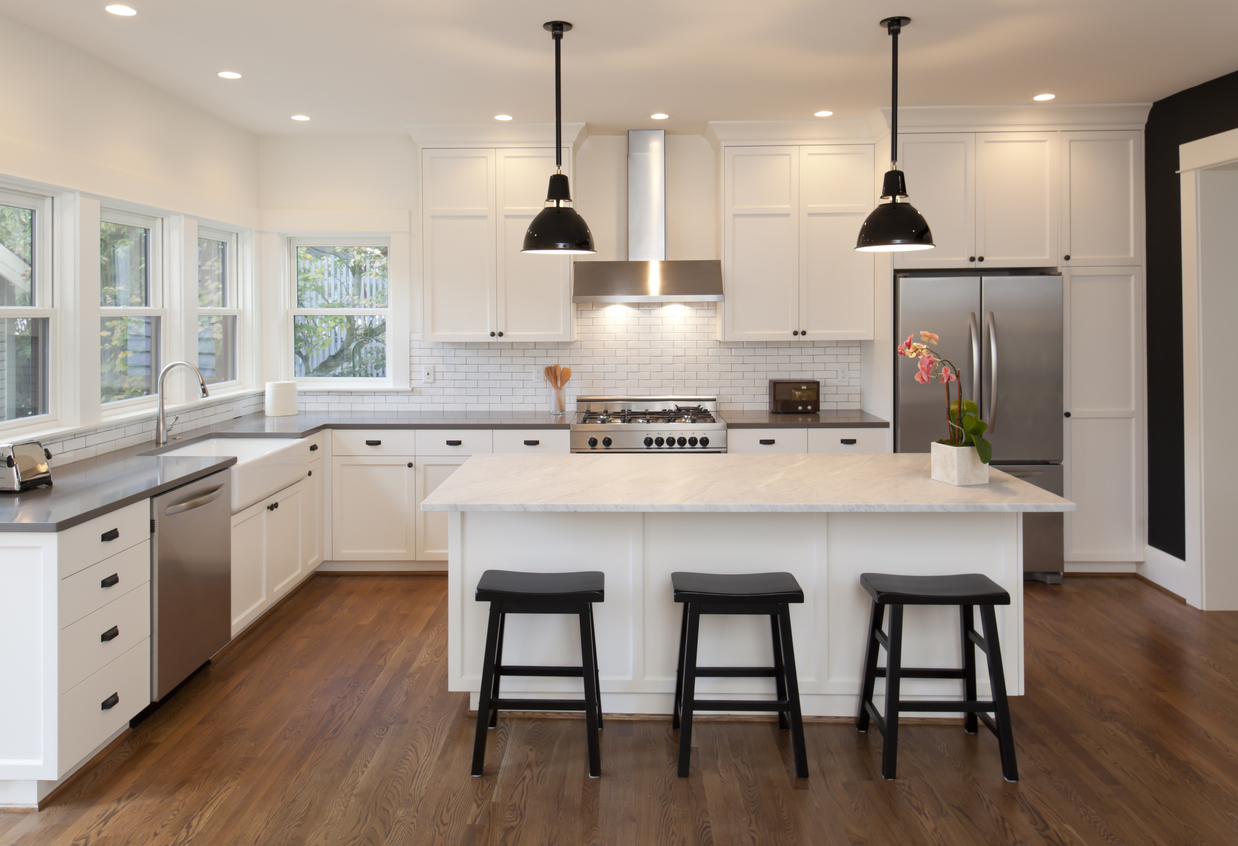Maximize your investment with these simple ways to increase home value
Published December 9, 2024 by Angela Talbot
-
Categories:
- Home Lending

In today’s competitive real estate market, increasing the value of your home has never been more important. Whether you’re a homeowner looking to sell, a first-time buyer hoping to build equity, or a seasoned real estate investor aiming for a profitable flip, boosting your home’s worth can lead to significant financial rewards. This guide explores practical and effective ways to increase home value through strategic renovations, smart technologies, and thoughtful staging. By leveraging financing options like home equity loans or lines of credit, you can achieve these improvements without breaking the bank.
 Top renovations to increase home value
Top renovations to increase home value
When it comes to adding value to your home, not all renovations are created equal. Focusing on areas with the highest return on investment (ROI) is key.
Top renovation areas
Kitchen and bathroom upgrades often top the list, as these spaces are crucial selling points for potential buyers. Think about updating your kitchen with new countertops, efficient appliances, and modern cabinets. In bathrooms, focus on fixtures like sinks, showers, and toilets that look good and work well.
Boosting energy efficiency
Energy efficiency improvements are another excellent way to boost home value. Installing double-glazed windows and adding attic insulation can significantly lower energy costs, making your home more attractive to eco-conscious buyers or those looking to save on energy bills.
Enhancing curb appeal
Don’t underestimate the power of curb appeal enhancements. Freshly painted exteriors, new garage doors, and well-maintained driveways can create a lasting first impression.
 Landscaping and outdoor spaces
Landscaping and outdoor spaces
Importance of outdoor spaces
Outdoor spaces are becoming more important for home value. Good landscaping can turn your yard into a beautiful, useful sanctuary.
Investing in landscaping
Start by investing in low-maintenance plants and shrubs that thrive in your local climate. This reduces upkeep and enhances visual appeal.
Creating functional outdoor areas
Creating functional outdoor living areas is another way to add value. Consider installing a deck or patio, which can serve as an extension of your indoor living space. Outdoor kitchens and fire pits are popular additions that offer year-round enjoyment. Ensure these spaces are well-lit and safe to access, adding both beauty and practicality.
 Investing in smart home technology
Investing in smart home technology
The impact of smart home technology on real estate
The rise of smart home technology has revolutionized the real estate market. Incorporating these features can significantly increase your home’s appeal and value.
Key smart home features
Smart thermostats, security systems, and lighting are just a few examples of technologies that enhance convenience and safety. Not only do these gadgets offer modern conveniences, but they also provide energy savings, appealing to tech-savvy buyers.
Stand out with home automation
Integrating voice-controlled devices and home automation systems can set your property apart, attracting more interest from potential purchasers.
 Energy-efficiency upgrades
Energy-efficiency upgrades
Benefits of energy-efficient homes
Energy-efficient homes are not only environmentally friendly but can also yield substantial long-term financial benefits. Implementing upgrades like solar panels, energy-efficient HVAC systems, and LED lighting can drastically reduce energy bills, contributing to a higher resale value.
Common energy-saving upgrades
Some common energy-saving upgrades include:
- Sealing gaps around windows and doors
- Upgrading to Energy Star-rated appliances
- Installing programmable thermostats
A cost vs. savings analysis often reveals that these investments pay for themselves over time, and can increase the overall value of your property.
Massachusetts leading the way
Massachusetts is leading in sustainable building practices, setting an example for other states. The state is revising requirements for new homes and encouraging homeowners to replace outdated heating systems by offering incentives for the installation of modern heating and cooling systems, insulation, and solar panels. Both homeowners and builders are encouraged to adopt these changes to foster a more sustainable future.
Learn how to be more energy efficient
 Professional home staging
Professional home staging
The importance of first impressions
When selling a home, first impressions matter. Professional home staging can attract higher offers and reduce the time your property spends on the market.
Showcasing your home’s potential
Staging showcases your home’s potential, helping buyers envision themselves living there.
Key staging tips
- Declutter Each Room: Remove unnecessary items to create a clean and inviting space.
- Arrange Furniture: Highlight space and flow by strategically placing furniture.
- Add Tasteful Decor: Use decor that complements your home’s style.
Consider lighting and color
Pay attention to lighting and color schemes, as these elements can significantly impact how a space is perceived.
 Financing your improvements
Financing your improvements
Increasing your home’s value is a smart investment for homeowners and real estate investors. By focusing on high-impact renovations, strategic landscaping, and modern technologies, you can enhance your property’s appeal and marketability. Many of these home improvements could also be considered tax deductible. Check with your tax preparer to see if you qualify.
Financing options like home equity loans and cash-out refinancing provide the funds needed to undertake projects, allowing you to unlock your home’s full potential. In addition to these, home equity lines of credit (HELOCs) are another excellent financing option.
HELOCs offer a flexible way to access the equity in your home, allowing you to borrow against it as needed. This can be particularly beneficial for ongoing projects or expenses, as you only pay interest on the amount you draw. With HELOCs, you can tap into your home’s value while maintaining control over your borrowing, making them a smart choice for homeowners looking to finance improvements or other needs.
Disclaimer: This content is intended to provide general information and shouldn’t be considered legal, tax or financial advice. It’s always a good idea to consult a tax or financial advisor for specific information on how certain laws apply to your individual financial situation.